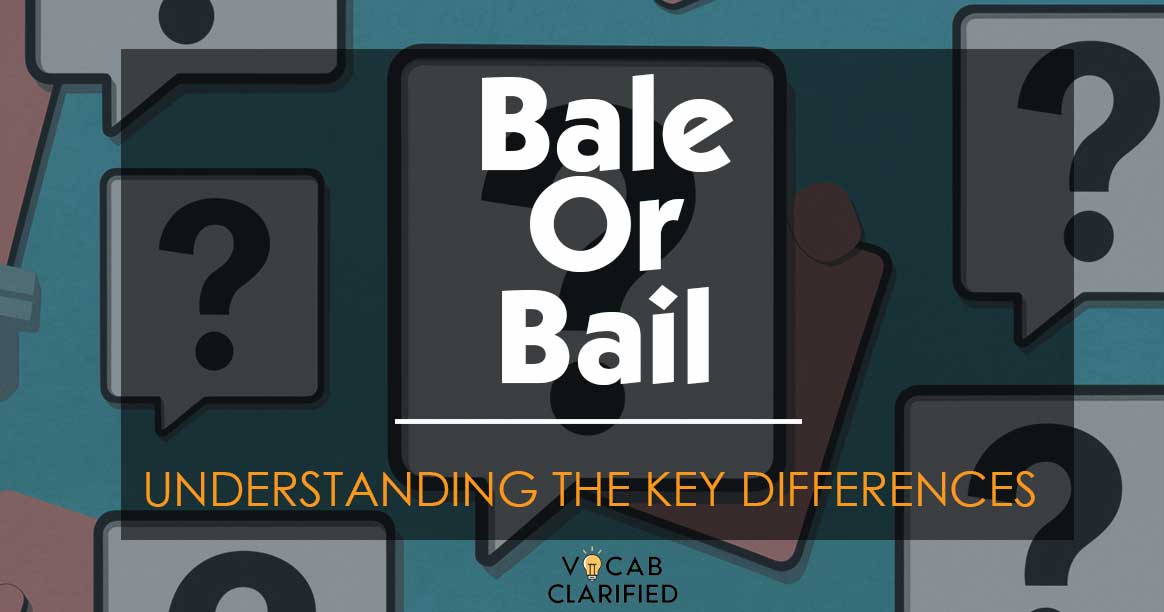Have you ever been in a conversation and hesitated between using “bale” or “bail”? These two words sound the same but have completely different meanings, leading to confusion if used incorrectly.
Let’s dive into the differences between these words and explore when each one is appropriate to use.
Understanding Bale And Bail
Bale: Definition and Usage
“Bale” is a noun that typically refers to a large bundle of goods, such as hay, cotton, or paper, that is tightly bound and wrapped for storage or transport.
In agricultural contexts, bales are commonly seen on farms:
- Example 1: “The farmer stacked the hay into neat bales for the winter.”
- Example 2: “They transported the bales of cotton to the warehouse for processing.”
Bail: Definition and Usage
On the other hand, “bail” can be used as both a noun and a verb, and it has several meanings. As a noun, it refers to the money or collateral given to secure the release of someone from jail, pending trial.
As a verb, it can mean to pay that money or to abandon a situation:
- Example 1 (Noun): “He was released on bail after the court hearing.”
- Example 2 (Verb): “She decided to bail out of the risky investment.”
Side-by-Side Comparison
| Aspect | Bale | Bail |
| Definition | A large, tightly bound bundle of goods | Money or collateral for release from jail (noun); to abandon or leave a situation (verb) |
| Common Usage | “The bale of hay was too heavy to lift alone.” | “He had to bail out of the project at the last minute.” |
| Key Differences | Refers to physical bundles, especially in agriculture | Refers to legal and financial contexts or leaving a situation |
When deciding between “bale” and “bail,” context is crucial.
Use “bale” when referring to bundled goods, particularly in farming or industrial settings. “Bail” should be used in legal or financial scenarios, or when discussing leaving or abandoning a situation.
Understanding the context will ensure that you choose the right word.
Everyday Usage Examples
Both “bale” and “bail” appear in different contexts within everyday language. Here are examples to illustrate their usage:
- Bale: “The workers loaded the bale of hay onto the truck.”
- Bail: “The judge set bail at $10,000 for his release.”
- Bale: “They produced 50 bales of cotton this season.”
- Bail: “She decided to bail on the event because she wasn’t feeling well.”
- Bale: “He used a machine to compress the cardboard into bales.”
- Bail: “The company had to bail out of the deal after the stock market crash.”
Conclusion
In conclusion, while “bale” and “bail” are homophones, their meanings are very different. “Bale” is associated with physical bundles, especially in agricultural contexts, while “bail” is used in legal, financial, or situational contexts.
By paying attention to the context and meaning, you can confidently choose the correct word for your needs.

